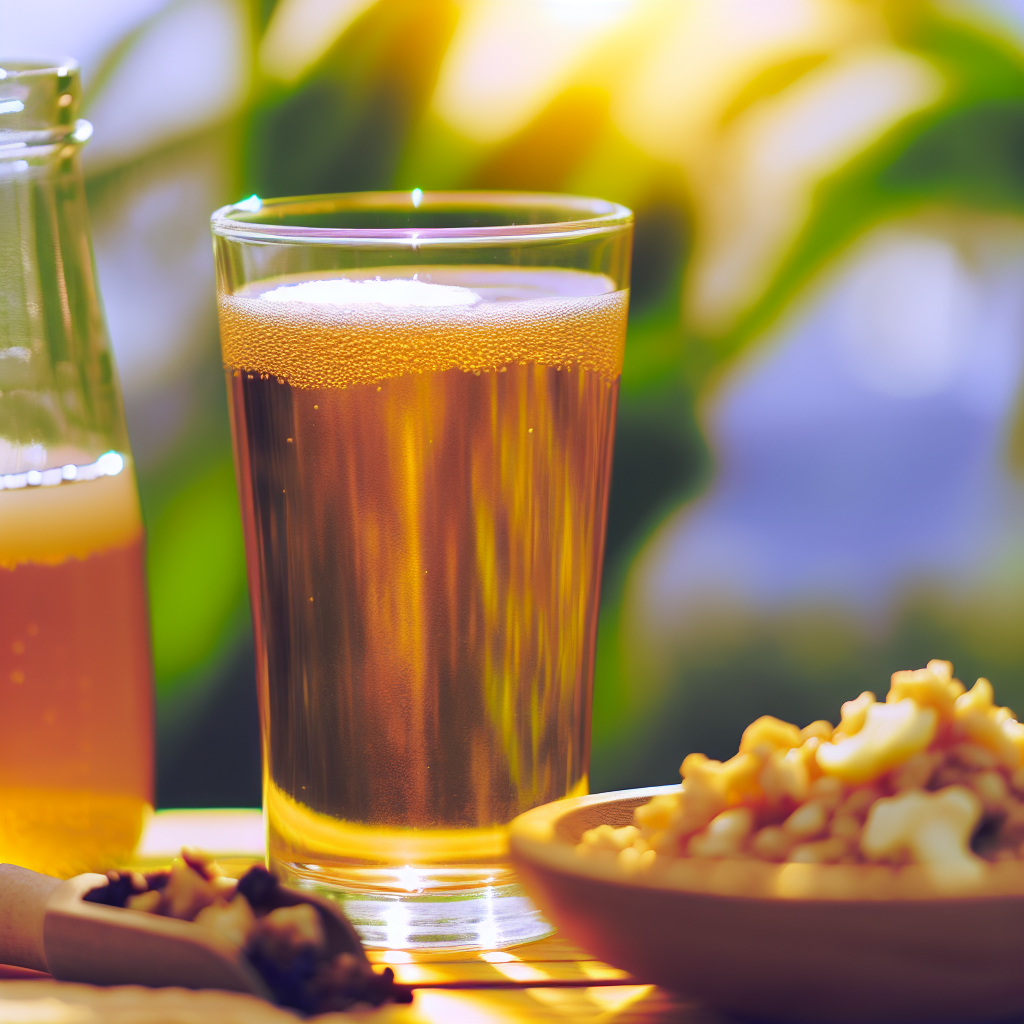Uncovering the Truth: The Alcohol Percentage in Kombucha Tea

Uncovering the Truth: The Alcohol Percentage in Kombucha Tea
Kombucha tea has been gaining popularity in recent years, but there is still much debate surrounding its alcohol content. Many people believe that kombucha is a healthy alternative to sugary drinks and alcoholic beverages, but the truth is that some varieties of kombucha may contain alcohol. In this article, we will uncover the truth about the alcohol content in kombucha tea and explore the potential health risks associated with consuming it.
First, let’s take a closer look at what kombucha tea is and how it is made. Kombucha is a fermented tea beverage that has been consumed for centuries in various cultures around the world. The traditional method of making kombucha involves fermenting sweetened tea with a symbiotic culture of bacteria and yeast (SCOBY). During the fermentation process, the yeast consumes the sugar in the tea and produces alcohol and carbon dioxide as byproducts. The bacteria then convert the alcohol into acetic acid, which gives kombucha its characteristic tangy flavor.
The alcohol content of kombucha can vary depending on a number of factors, including the amount of sugar and yeast in the culture, the length of the fermentation period, and the temperature at which the tea is brewed. In general, most commercially available kombucha products are required to contain less than 0.5% alcohol by volume in order to be considered non-alcoholic. However, some home-brewed kombucha and small-batch artisanal brands may contain higher levels of alcohol.
The presence of alcohol in kombucha has sparked controversy and regulatory scrutiny in recent years. In 2010, the Alcohol and Tobacco Tax and Trade Bureau (TTB) issued a statement clarifying that kombucha with an alcohol content of more than 0.5% by volume is subject to regulation as an alcoholic beverage. This led to several kombucha brands being pulled from store shelves and reformulating their products to comply with the regulations.
So, what are the potential health risks associated with consuming kombucha with higher alcohol content? For one, excessive alcohol consumption can lead to a range of negative health effects, including impaired judgment, motor skills, and cognitive function. In addition, alcohol can be especially harmful to certain individuals, such as pregnant women, people with liver disease, and those taking certain medications. Therefore, it is important for consumers to be aware of the alcohol content in the kombucha products they are purchasing and to consume them in moderation.
Another issue with kombucha tea is the risk of contamination during the fermentation process. Since kombucha is brewed at home or in small-scale facilities, there is a higher risk of contamination with harmful bacteria or molds. Improper brewing and storage conditions can lead to the growth of pathogens, such as salmonella or E. coli, which can cause food poisoning and other gastrointestinal issues.
To mitigate these risks, it is recommended to purchase kombucha from reputable brands that adhere to strict quality control standards and have their products regularly tested for alcohol content and microbial contamination. It is also important for consumers to be mindful of the signs of spoilage, such as off-putting odors, unusual colors, or excessive carbonation, and to discard any kombucha that appears to be spoiled.
Despite the potential risks associated with kombucha, it also offers several potential health benefits. Kombucha is rich in probiotics, which are beneficial bacteria that promote digestive health and boost the immune system. It also contains antioxidants, organic acids, and vitamins, which may contribute to overall well-being. However, it is important to note that these health benefits are more likely to be present in kombucha that has not been pasteurized or overly processed, as these methods can destroy the beneficial compounds.
In conclusion, the alcohol content in kombucha tea is a contentious issue that has led to regulatory scrutiny and consumer concern. While most commercially available kombucha products are required to contain less than 0.5% alcohol by volume, there is still a risk of higher alcohol content in some home-brewed or artisanal brands. It is important for consumers to be aware of the potential health risks associated with consuming kombucha with higher alcohol content and to purchase products from reputable brands that adhere to strict quality control standards. Additionally, it is important to consider the potential benefits of consuming kombucha, such as its probiotic and antioxidant content, and to enjoy it in moderation.
[elementor-template id=”430″]
[elementor-template id=”433″]



0 Comments